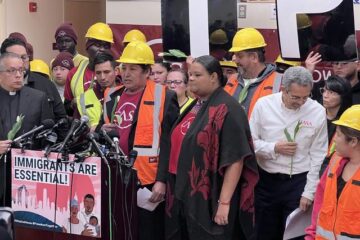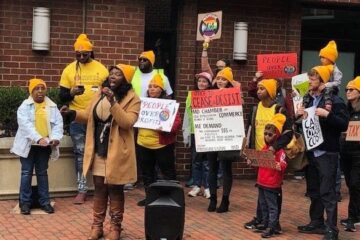The 2021 legislative, municipal and Central American parliamentary elections took place in El Salvador on February 28. Preliminary legislative results show the president’s party, Nuevas Ideas (New Ideas), winning the majority of seats in the Legislative Assembly.
Vying for second place are a coalition between Nuevas Ideas and the right-wing Grand Alliance for National Unity (GANA), the party with which Bukele ran for president in 2019, and the right-wing National Republican Alliance (ARENA). GANA’s own candidates and the leftist Farabundo Martí National Liberation Front (FMLN) party trail behind.
The Supreme Electoral Tribunal (TSE), an independent body that governs elections, urged patience as the final vote count is performed in the coming days. (Check for official results here). Voter turnout was estimated to be 51%, an increase over the 2018 legislative and municipal elections (46%).
If projections hold, Nuevas Ideas will become the first political party in modern Salvadoran history to hold over 50% of the seats in the legislature. When joined by legislators who ran under the Nuevas Ideas-GANA coalition, they will achieve a super-majority. Bukele’s party will have near-total power to elect the next Attorney General and a new group of Supreme Court magistrates, thus consolidating control over the country’s decision-making bodies.
With a super-majority, they will also be able to approve loans single-handedly and amend the constitution, though any changes will need to be ratified by the subsequent legislature. An ad-hoc commission headed up by Vice-President Félix Ulloa that was already studying potential constitutional changes has proposed reinstating mandatory military service, among others.
Prior to and throughout the campaign period, environmental, youth, women’s, feminist, union and other social movement organizations voiced concerns over pre-electoral violence and false allegations of fraud made by President Bukele and Nuevas Ideas intended to sow distrust in El Salvador’s public institutions. For months, the Bukele administration accused election officials of conspiracy to commit fraud. In response, Nuevas Ideas supporters and the National Civil Police (PNC) physically attacked and arrested election workers in November of last year, among other incidents of intimidation aimed at members of the TSE.
Political violence escalated on January 31st, when two members of the FMLN were shot and killed by government employees. The attack, considered one of the worst in decades, prompted Members of Congress to write a letter to the State Department expressing concerns that “political dialogue has devolved into themes of intolerance, violence, bribery, and corruption.”
Throughout the campaign, the Bukele administration systematically violated electoral law, from withholding public campaign funds from participating parties to using tax dollars to illegally campaign for Nuevas Ideas. (Read more in CISPES’ guide to the February 2021 Elections) The President’s disregard for electoral laws continued on election day, when Bukele hosted a press conference in which he encouraged Salvadorans to vote for a legislature that would “work with his government,” thereby violating legal restrictions on election-day campaigning and prompting the TSE to initiate a process of sanctioning the President.
Despite the repeated violations of campaign laws and atmosphere of intimidation and hostility that characterized the campaign period, national and international elections observers confirmed that citizens were able to exercise their right to vote with no reports of generalized irregularities.
The work of the TSE, established as part of 1992 Peace Accords, was significantly improved during the two FMLN administrations from 2009-2019. During that time, the TSE removed at least 50,000 deceased voters from the rolls and quadrupled the number of voting centers, among other substantial improvements that significantly reduced the rampant voter fraud of previous years. Some of these advancements were rolled back by a series of controversial rulings made by the Constitutional Chamber of the Supreme Court that resulted in the legislative election process becoming among the most complicated in Latin America. Notwithstanding, El Salvador’s electoral process remains highly transparent.

Fomenting distrust of the TSE is part of Bukele’s broader push to weaken and undermine the other branches of government and independent public institutions. Bukele’s masterful ability to shape public opinion, aided by his oversized communications budget and Nuevas Ideas’ disproportionate campaign spending (representing 87% of total campaign spending in November and December), has won his party substantial popular support even as he has been internationally condemned for human rights abuses.
Ironically, after styling himself as an anti-corruption crusader, once in office, the Bukele administration quickly moved to eliminate the Secretariat of Transparency and officials refused to declare their assets. Since then the Bukele administration has been plagued by dozens of investigations into the mismanagement of state funds, while many newly elected Nuevas Ideas candidates are themselves marred by reports of corruption while previously holding political office.




